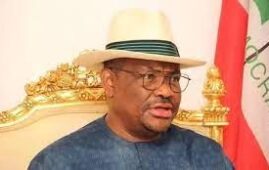The US is wantonly pursuing a wrong path on the origin tracing of COVID-19, even if it knows clearly that China will never accept its manipulation or the so-called second phase of studies into the origins of COVID-19 that targets only China.
In order to discredit China, the US has not only resorted to conspiracy theories, but also claimed to work with allies and partners to pressure Beijing.
Given the current resurgences of the COVID-19 epidemic around the world, especially the unprecedented comeback of the virus in the US, what Washington has done is obviously hindering and delaying the important scientific topic of origin tracing, which shows its indifference to the rights to life and health of all people in the world, including American citizens.
Major country cooperation is of vital importance for coping with global challenges, such as the COVID-19 pandemic. In 2014, the remarkable and fruitful cooperation between China and the US on combating the Ebola virus set an example of collaboration between major countries in fighting diseases. Why is the US failing the expectations from the international society and making China-US relations a confrontation when the pandemic is threatening the security of the world and posing serious challenges for the US itself? Such unreasonable practices come from poor government performance and the gradually rising dissatisfaction of the US citizens. To shift domestic contradictions, the White House mistakenly takes China as a scapegoat, wishing to show its “responsibility” and seek political profits through a tough stance on China.
According to New York Times, the seven-day average of daily new cases stood at 71,231 in the US as of July 29. Such bitter fact once again proved that setting an imaginary enemy doesn’t do any good to the problems the US is currently facing. Endless infections, racial conflict, gun violence, wealth inequality, social divide and poor governance in the US all point to deep-rooted structural problems of the US society.
Washington knows full well that these problems were caused by the US and can be solved only by the US, but it is still arbitrarily wasting political resources on provoking confrontations with other countries. It fully exposes the defects of the American democracy that prioritizes shows over governance.
The current administration in the White House vowed to restore the “soul” of America, declaring that both its domestic and foreign policies would serve the middle class in the country. However, there’s a widening gap between the vow and the facts, as the US political agenda is kidnapped by the intensifying partisan fights in the country.
To advance racial equity is taken by the US President as the most important one among his four priorities, and he mentioned “a cry for racial justice, some 400 years in the making” in his inauguration speech. However, the George Floyd Justice in Policing Act is still not passed.
To enhance infrastructure construction is a rare consensus reached between the Democrats and the Republicans, but relevant acts are not even in the making as the two parties always oppose each other for the sake of opposing.
According to a survey, 59 percent of interviewed US citizens said they were unsatisfied with how the American democracy functions, and 55 percent said they were pessimistic about the future of their country.
“The bitter partisan fights over voting rights, national security policy, a massive infrastructure program, law enforcement and gun policy reforms, and even the state of race relations all signal that the soul of America very much hangs in the balance,” said Ted Johnson, director of the Fellows Program at the Brennan Center for Justice.
Twenty years ago, an American scholar pointed out that since the end of the Cold War, many Americans have been suffering from an enemy-deprivation syndrome. Today, this syndrome is even more obvious. Some Americans stupidly believe that an imaginary enemy outside the US will help the divided country recover its goals. Driven by such wrongful philosophy, the incumbent US administration is continuing the extreme and wrong policies on China started by its predecessor, enhancing its efforts to contain China and frequently challenging the latter. The paranoia of the White House on origin tracing exactly mirrors its political calculations. In other words, such deceiving practices reveal the cowardice of the US government.
American magazine Foreign Policy recently said in an article that US-China relations are already at their worst point in decades, and the administration’s strikingly confrontational approach is likely to make things worse, while damaging other US interests in the process.
In July 50 years ago, the US was swept by racial unrest and anti-war protests, and the Americans’ confidence in their country’s future hit the lowest point ever. In a speech delivered in Kansas City, the then US President Richard Nixon reminded Americans the importance of healthy moral strength and spiritual strength with an example of the collapse of ancient empires. Three days after the speech, Nixon’s National Security Advisor Henry Kissinger secretly visited China. As the two countries resumed exchanges, the sound interaction between them benefited the two peoples and even the entire world at large.
Today, it is necessary for the White House to draw wisdom from history. Just as American historian Melvyn Leffler said, when thinking about the future of US-China relations, focuses should be placed more on the US.
The US itself remains the largest enemy of its own. China’s development has never been and will never be based on a falling America. What the US government needs to do is to truly restore its lost soul by righting its wrongs. Taking China as an imaginary enemy will provoke confrontation between the two countries, which will not only hinder the efforts of the US to solve domestic problems, but also divide the international society. If that is the case, what will be damaged will be more than the global fight against COVID-19.
(Zhong Sheng is a pen name often used by People’s Daily to express its views on China’s foreign policy and international affairs.)




Leave a Comment